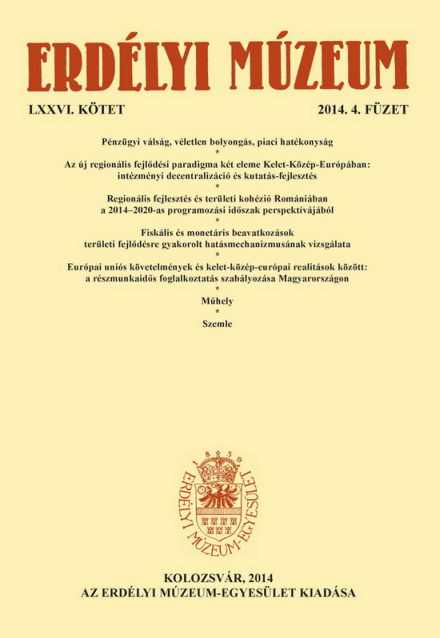Pénzügyi válság, véletlen bolyongás, piaci hatékonyság
Financial Crisis, Random Walk, Market Efficiency
Author(s): Iván BélyáczSubject(s): Economy
Published by: Erdélyi Múzeum-Egyesület
Keywords: financial crisis; market efficiency
Summary/Abstract: In financial theory we can accept as basic standard that time variation of prices at financial markets can be described by random walk. Random walk means that prices do not follow any trend or tendency and past price movements are unsuitable for speculating about future price variations. On the other hand there exists another paradigm that is based on the ergodic axiom. It claims that the probability distribution of the present and the past defines that probability distribution which dictates future market price outcomes. Random walk hypothesis and the ergodic axiom – in theory – are polar opposites. While the concept of uncertainty is linked closely to the first, the latter claims possibility of forecasting. Empirical proof is obtainable about the random walk hypothesis but the the ergodic axiom can be regarded as an endeavor to resolve uncertainty. The paper examines how the theory of efficient markets and the efficiency of the market itself provides a means of passage to this contradiction.
Journal: Erdélyi Múzeum
- Issue Year: LXXVI/2014
- Issue No: 4
- Page Range: 1-20
- Page Count: 20

